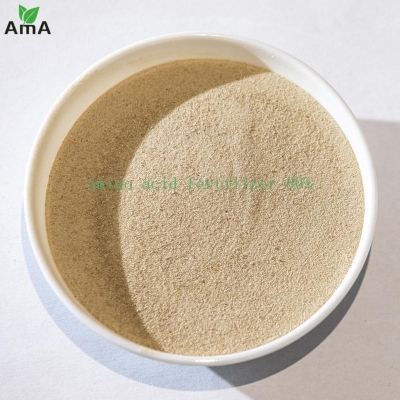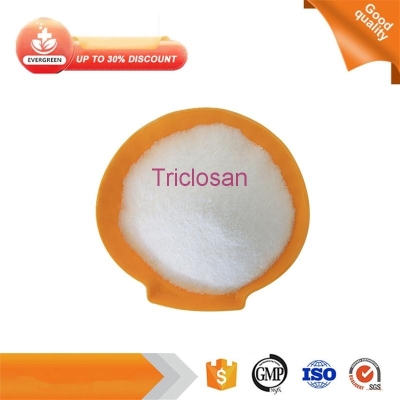-
Categories
-
Pharmaceutical Intermediates
-
Active Pharmaceutical Ingredients
-
Food Additives
- Industrial Coatings
- Agrochemicals
- Dyes and Pigments
- Surfactant
- Flavors and Fragrances
- Chemical Reagents
- Catalyst and Auxiliary
- Natural Products
- Inorganic Chemistry
-
Organic Chemistry
-
Biochemical Engineering
- Analytical Chemistry
- Cosmetic Ingredient
-
Pharmaceutical Intermediates
Promotion
ECHEMI Mall
Wholesale
Weekly Price
Exhibition
News
-
Trade Service
A retrospective study of EGFR-TKI Ectini, developed by Beda Pharmaceuticals, was published in the Journal of Clinical and Translational.
results showed that the objective remission rate (ORR) was as high as 79.31% in patients with advanced non-small cell lung cancer (NSCLC) in the first-line treatment of EGFR mutations with Ektini combined chemotherapy, and PFS was significantly extended by nearly 7 months.
, the study provides a better treatment strategy for patients with advanced non-small cell lung cancer with EGFR mutations.
Screenshot Source: Reference: Ektinib is a powerful, highly selective oral EGFR-TKI developed by Beda Pharmaceuticals over a period of nearly a decade and belongs to class 1 innovative drugs.
EGFR-TKI is able to specifically and competitively bind to the ATP binding points in the EGFR kinase functional region, inhibiting its kinase activity and thus blocking the transmission of cancer cell proliferation, metastasis and other related signals.
2011, Ektinib was approved for listing in China for second/ third-line treatment in NSCLC patients.
2014, Ektinib was approved again for first-line treatment in patients with local late stage or metastasis NSCLC with sensitive mutations in the EGFR gene.
addition, a new adaptation listing application for phase II-IIIA with EGFR gene-sensitive mutation NSCLC postoperative assisted treatment has been submitted in China and is included in the priority review.
in the study, published today, researchers conducted a retrospective analysis of 271 patients to explore better treatment strategies for patients with advanced non-small cell lung cancer with sensitive skin growth factor(EGFR) mutations.
patients were divided into two groups according to the treatment method: the joint group (58 cases) and the sequentia group (213 cases).
patients in the combined group received first-line pyrethrethone, capratine, and then patients were treated with pyrethreone and ectinil maintenance until there was insoluable toxicity or disease progress or death.
patients in the
sequentain group receive first-line ectini treatment until it develops into a progressive disease (PD), followed by second-line chemotherapy (pemetrics and carpton) to maintain treatment until the disease progresses or becomes insulable or toxic or dead.
end point is progress-free lifetime (PFS) and PFS2 for follow-up treatment options.
results showed that the PFS of the joint group was significantly higher than that of the sequenty group (16.89 months vs 9.90 months; p -lt;0.001), and that the PFS2 of the follow-up treatment was significantly higher than that of the sequenty group (16.89 months vs 14.05 months; p s 0.009).
group reached 33.22 months (vs 26.47 months) in terms of total lifetime (OS).
same time, the ORR of the union group is superior to the sequenty group (79.31% to 52.11% ;p slt;0.001).
tendency score match also showed that ecstasy combined chemotherapy extended the patient's PFS, PFS2 and OS.
the objective mitigation rate of the joint group was also higher than that of the sequenty group (79.31 per cent to 51.72 per cent ;p 0.001).
Screenshot Source: Resources: In the past few decades, platinum chemotherapy has been an important treatment strategy for many lung cancer patients, despite limited survival benefits and adverse events such as bone marrow inhibition and vomiting.
early stages, clinical researchers tried to combine EGFR-TKI with chemotherapy.
, however, the strategy of combined chemotherapy with EGFR-TKIs in most studies did not improve survival rates compared to conventional chemotherapy.
authors point out that these failures are mainly due to patient choice, and that wild EGFR patients do not benefit from EGFR-TKI treatment.
retrospective results show that EGFR-TKI combined chemotherapy provides PFS that is superior to EGFR-TKI alone.
the results also showed that ectini combined with pyrethroid platinum as a first-line treatment compared to a separate two-line therapy, can improve PFS, PFS2, OS and ORR in patients with sensitive EGFR mutations and advanced lung adenocarcinoma.
Other words, combined therapy yielded better results, showing high remission rates and low residual tumor load, reducing the diversity of tumor cells, and reducing tumor production of drug-resistant cells, thereby delaying the arrival of resistance.
at the same time, reducing the risk of death due to progress, making patients more likely to receive follow-up treatment.







